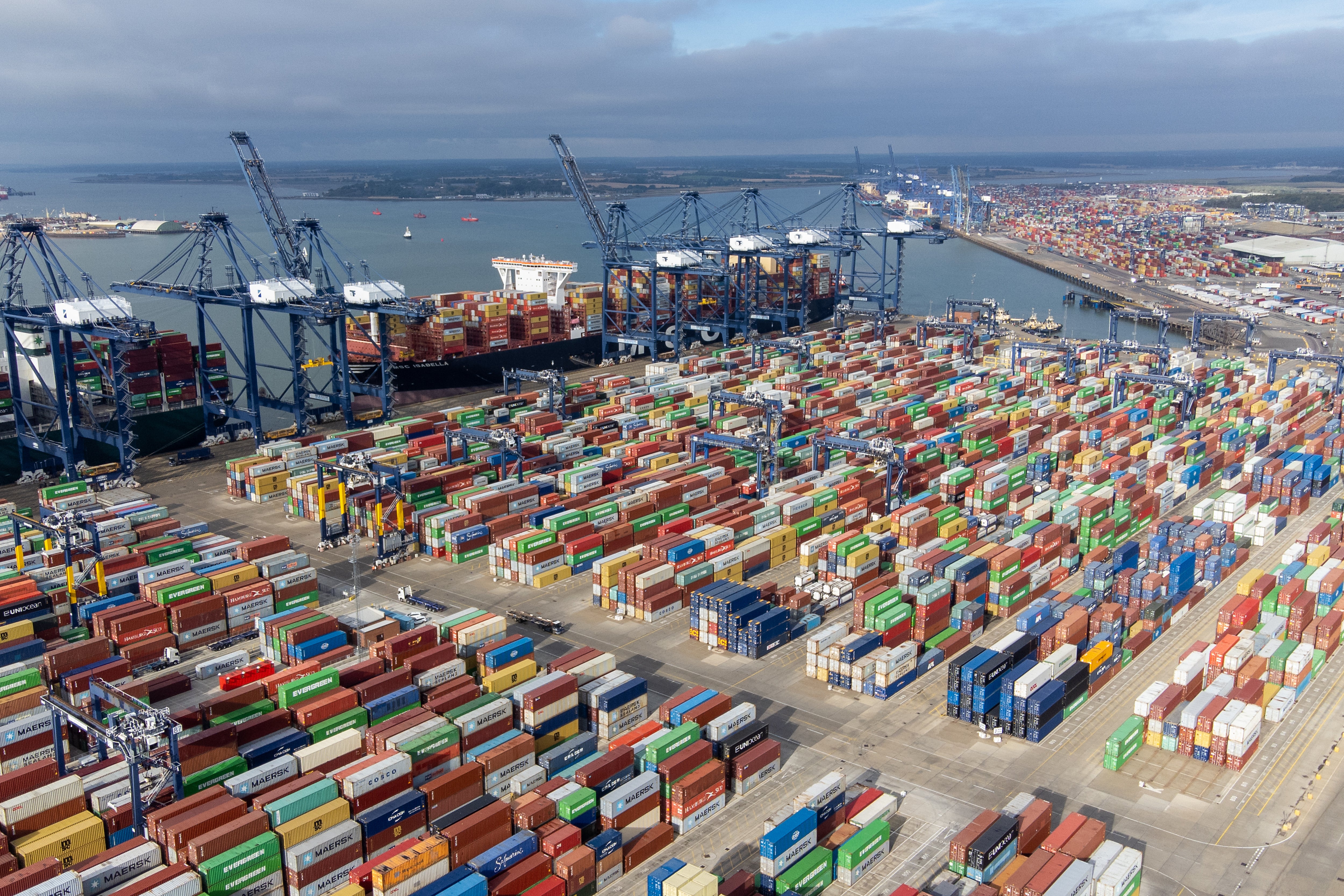The biggest long-term lessons we can learn from the supply chain crisis
We need contingency planning for this winter, but also thoughtful work to create a more resilient economy generally, writes Hamish McRae


The just-in-time world economy is in trouble. Container ports from Shanghai to Los Angeles to Felixstowe are jammed, with ships waiting to be unloaded and more waiting offshore to dock. There are not only worries about supplies for Christmas, but fears that the global shipping crisis may last well into next year.
The squeeze on energy supplies has led to blackouts in India and China. And of course the UK has its own homegrown problem of smaller energy companies going bust.
We are not used to this. Only people in their 70s or older can remember post-war food rationing, which continued right through until 1954. The only comparable global energy squeeze happened in the 1970s, when the Organisation of the Petroleum Exporting Countries (OPEC) quadrupled the price of oil. We have become accustomed to a world where we can get almost anything we want delivered to our door whenever we want it. Fresh flowers, cut just in time for Christmas? Of course, flown in from Kenya. What could be more normal?
But of course it isn’t. Quite aside from the environmental concerns, there are worries that excessive globalisation has become a source of instability for countries that rely on imports for much of their needs. Christine Lagarde, now head of the European Central Bank, tackled this subject in the annual Per Jacobsson lecture for the IMF (International Monetary Fund) in Washington on Saturday. Her message was that, whereas globalisation used to make the European economy more stable – if you could not get produce from one place you got it from somewhere else – the reverse was now true.
“Faced with historically long delivery times, global manufacturers’ stockpiling of inputs continues to run higher than before the pandemic,” she said. If that persists, “we could see a more volatile industrial business cycle”. She was talking about the impact on the Eurozone, but since the UK is even more dependent on global trade, it actually applies very much to the UK too.
So what will happen? Two points.
The first is that stockpiling is one response to supply chains becoming more clogged, and that is going to happen. But there is another possible response: to rely less on foreign production, and to make more stuff at home. That too is starting to happen in the UK, partly as a result of Brexit. Trade with Europe has fallen particularly sharply, as you would expect, but overall trade is down, even though consumption is back above pre-pandemic levels. It would be silly to try to draw firm conclusions when things are so disrupted, but anecdotally there seems to be a shift to local sourcing.
For example, the German supermarket chain Lidl claims:“We're … passionate about sourcing locally where possible and more than two-thirds of our products are sourced from British suppliers.” In April, John Allan, head of Tesco, called for companies to boost British supply chains and rely less on overseas sources. Add in the environmental case for producing locally, and this seems a bit of a no-brainer.
The second point is that we will have to accept having less choice. It is astounding how much choice we have. But do we really need or even like it? Both Aldi and Lidl have pioneered the concept of giving people far fewer items to choose from but keeping up the quality of everything. Result: they cut the cost to the shopper – and are increasing their share of the UK market.
There has been a huge debate for a number of years as to whether people do really want choice, or whether they actually prefer simplicity. It seems people say they want a wider range of things to choose from, but actually are liable to get confused and worry they may buy the wrong things. This is not going to be resolved any time soon, but in the short term at least we are going to have less choice. There will be less stuff from China in the shops this Christmas.
There is a further twist to the story. It is that there are some things that are absolutely essential, and companies and governments will have to work harder to make sure they are available. These include vehicle fuel, medicines, basic food and household supplies, gas and electricity… and so on.
That means contingency planning for this winter, but also thoughtful work to create a more resilient economy generally. They need to keep the lights on.
Join our commenting forum
Join thought-provoking conversations, follow other Independent readers and see their replies
Comments
Bookmark popover
Removed from bookmarks